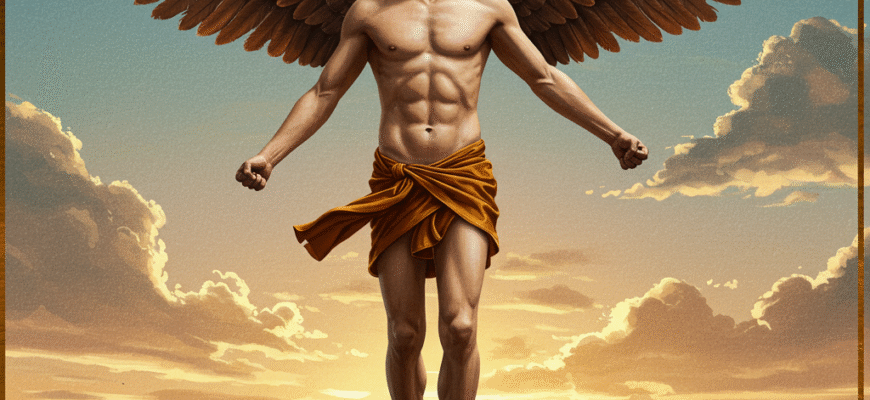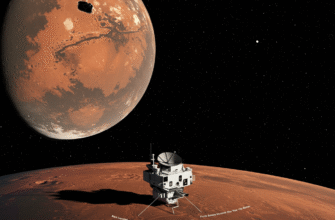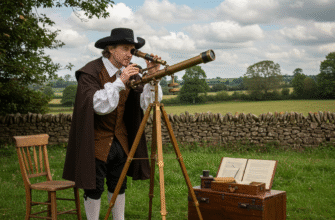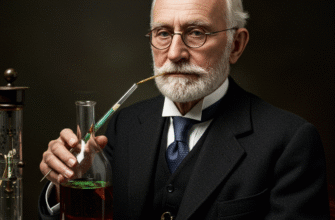The tapestry of Greek mythology is woven with threads of heroism, tragedy, divine intervention, and, perhaps most resonantly, profound human truths. Among these enduring narratives, the story of Icarus stands out, not for a triumphant hero, but for a boy whose ambition outstripped his judgment, leading to a calamitous fall. It is a tale whispered through millennia, a stark reminder of the perils of hubris and the wisdom of heeding experienced counsel, a story that continues to find echoes in our modern aspirations and failings.
The Shadow of the Labyrinth and a Daring Escape
Our story begins on the island of Crete, under the tyrannical gaze of King Minos. Here lived Daedalus, an unparalleled craftsman, an inventor of such genius that his creations blurred the line between the mundane and the magical. His most famous, or infamous, commission was the Labyrinth, a bewildering maze designed to imprison the monstrous Minotaur. But Daedalus, for reasons debated by ancient chroniclers – perhaps he aided Theseus in his escape, or Minos simply wished to keep his skills exclusive – found himself and his young son, Icarus, captives on the very island his ingenuity had helped to shape. The sea routes were guarded, the land hostile. Escape seemed an impossible dream.
Yet, for a mind like Daedalus’s, impossibility was merely a challenge awaiting a novel solution. Gazing at the gulls soaring effortlessly above the Cretan shores, an audacious idea took root. If escape by land or sea was barred, then they would take to the air. “Minos may control the land and sea,” Daedalus mused, “but he does not control the air.” Thus began the meticulous, secret work of crafting wings, not of divine origin, but born from human intellect and perseverance.
A Father’s Ingenuity, A Son’s Impatience
In a secluded workshop, hidden from prying eyes, Daedalus gathered his materials. Feathers, countless feathers, were collected, ranging from the smallest down to the robust quills of larger birds. These he painstakingly arranged, grading them by size, mimicking the natural architecture of a bird’s wing. He bound the larger feathers together with thread, while the smaller ones were secured with beeswax, a substance whose critical role would soon become tragically apparent. Icarus, a boy on the cusp of manhood, watched with a mixture of awe and youthful restlessness. He would often playfully chase the stray feathers that drifted on the workshop’s air currents or try to mold the pliant wax with his thumbs, sometimes hindering, sometimes amusing his focused father.
Daedalus, despite his anxieties, worked with the unwavering precision of a master. He bent and shaped the frameworks, tested the balance, and ensured each wing was a marvel of lightweight engineering. Finally, two pairs of magnificent wings were complete, promising a passage to freedom that no mortal had ever before attempted in such a fashion.
Daedalus imparted a critical warning before their perilous journey. He urged Icarus to maintain a moderate course, avoiding the sea’s dampness which could weigh down the wings. Crucially, he forbade flying too high, as the sun’s heat would melt the wax, leading to certain doom. This paternal counsel emphasized balance and obedience as keys to survival.
The Intoxication of Flight, The Lure of the Sun
With a mixture of trepidation and exhilaration, father and son launched themselves from the cliffs of Crete. The initial moments were awkward, a struggle against gravity, but soon they caught the updrafts, and the sensation of flight – pure, untethered freedom – coursed through them. Below, the world transformed into a map: fishermen appeared as tiny specks, and shepherds gazing upwards seemed frozen in astonishment. Daedalus, ever cautious, maintained a steady altitude, a guiding beacon for his son.
Icarus, however, was utterly bewitched. The wind sang in his ears, the vast expanse of the sky opened before him, a limitless playground. He felt like a god, transcending mortal bounds. The initial fear was replaced by an intoxicating joy, a burgeoning confidence that soon swelled into reckless abandon. His father’s warnings began to fade, like distant echoes drowned out by the thrill of his ascent. He started to swoop and soar, testing the limits of his newfound ability, each daring maneuver feeding his exhilaration.
Driven by this intoxicating power and a desire to touch the heavens, Icarus began to climb higher, ever higher, drawn irresistibly towards the blazing sun. He forgot the delicate balance of his man-made wings, forgot the fragile nature of the wax that bound his fate. The warmth on his face was pleasing at first, then invigorating, but soon it turned into a burning intensity. The sweet smell of melting wax reached his nostrils, a premonition he was too enraptured to heed.
The Inevitable Fall
Disaster struck with terrifying swiftness. The sun’s relentless rays did their work, softening the beeswax that was the linchpin of Daedalus’s design. One by one, the crucial feathers began to detach, fluttering uselessly away. Icarus flapped his arms, now largely bare, in a desperate, futile attempt to stay aloft. The horrifying realization of his folly dawned upon him as he felt his support give way. He cried out to his father, his voice a thin shred of sound lost in the vastness of the sky, but Daedalus was too far ahead, too focused on his own flight path, to immediately notice his son’s deviation and peril.
When Daedalus finally turned, alerted perhaps by a stray feather drifting past or a sudden absence of his son’s shadow, he saw a sight that would haunt him for the rest of his days. Icarus, plummeting towards the churning waves below, his wings disintegrated, his brief moment of god-like glory ending in a mortal’s terrifying descent. The grieving father could only watch in helpless anguish as his son was swallowed by the sea. He circled above, calling Icarus’s name, but only the waves answered. Later, after recovering his son’s body, Daedalus named the nearby island Icaria and the stretch of sea the Icarian Sea, eternal monuments to his lost boy and a broken dream.
Echoes Through Time: The Enduring Lessons of Icarus
The myth of Icarus is far more than just a dramatic story of a boy who flew too high; it is a mirror reflecting timeless human tendencies, a profound allegory rich with interpretations that have resonated through centuries of art, literature, and philosophy. It underscores the dangers of unchecked ambition and the critical importance of respecting limitations. The myth vividly illustrates how hubris can lead to a catastrophic downfall, especially when sound advice is ignored in favor of momentary exhilaration. Its enduring power lies in its simple yet profound message about the necessity of balance and humility, with its central theme being undoubtedly hubris – the dangerous pride and overconfidence that leads to a disregard for limits and warnings. Icarus, in his youthful exuberance, believed himself invincible, capable of defying the natural order and the wisdom of his father.
The Perils of Unchecked Ambition
The tale serves as a potent caution against ambition untempered by realism and prudence. While ambition can be a powerful driving force for achievement, Icarus’s story illustrates its destructive potential when it becomes an unbridled desire to transcend human limitations without understanding the inherent risks. He aimed for the sun, a symbol of ultimate attainment, but lacked the foresight or the humility to recognize the fragility of his means.
The Wisdom of the “Middle Path”
Daedalus’s warning to fly a “moderate course” – not too high, not too low – encapsulates the ancient Greek ideal of the “golden mean,” or meden agan (“nothing in excess”). This principle emphasizes balance, moderation, and the avoidance of extremes. Icarus’s tragedy stems directly from his failure to adhere to this vital instruction. He chose the extreme of exhilarating height over the safety of the middle way, a path that acknowledged both the potential of his wings and their inherent vulnerabilities.
This theme finds parallels in many aspects of life. Whether in personal endeavors, technological development, or societal progress, the pursuit of extremes often carries hidden dangers. The Icarus myth suggests that true wisdom lies in understanding limitations and navigating a balanced course, rather than being swayed by the intoxicating allure of boundless possibility without due caution.
Disobedience and the Rejection of Experience
Another critical layer to the myth is the consequence of disobedience. Icarus willfully ignored the explicit, life-saving instructions of his father – a figure representing not just parental authority but also accumulated knowledge and experience. Daedalus, the master inventor, understood the mechanics and limitations of his creation. Icarus, blinded by the novelty of flight, dismissed this wisdom. This aspect of the story speaks to the timeless tension between youthful impetuosity and the sagacity of age, highlighting the potential cost of rejecting guidance from those who have traversed similar paths or possess deeper understanding.
The Myth’s Resonance in the Modern World
Centuries after its first telling, the cautionary tale of Icarus continues to hold a powerful grip on our collective imagination. The phrase “flying too close to the sun” has become a common idiom, used to describe individuals or endeavors that court disaster through excessive ambition, recklessness, or a disregard for clear warnings. We see Icarus figures in the world of finance, where speculative bubbles are inflated by irrational exuberance, only to burst with devastating consequences. We see them in scientific and technological pursuits, where the relentless drive for innovation sometimes outpaces ethical considerations or a thorough understanding of potential negative outcomes.
Even on a personal level, the myth serves as a reminder. The pursuit of personal goals, careers, or even fleeting fame can sometimes lead individuals to take undue risks, compromise their values, or ignore the wisdom of mentors, leading to their own metaphorical “falls.” The Icarus complex, a term sometimes used in psychology, describes a pattern of ambition that is so grandiose it leads to self-destruction.
The story does not condemn ambition itself, nor does it decry innovation. Daedalus, after all, was the innovator. Rather, it cautions against the intoxication that can accompany newfound power or freedom, urging a marriage of aspiration with awareness, and courage with caution. It reminds us that true mastery involves not just the ability to soar, but the wisdom to know how high is too high.
Ultimately, the myth of Icarus is a story about human nature – our capacity for brilliant invention and our susceptibility to fatal flaws. It is a testament to the enduring power of ancient stories to illuminate the complexities of our own lives, urging us to navigate our ambitions with wisdom, humility, and a keen awareness of the immutable laws, whether of physics or of human experience, that govern our ascent.









